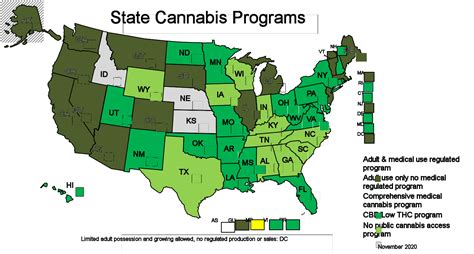Washington State has a comprehensive set of laws governing the use, sale, and cultivation of cannabis. Since the legalization of recreational marijuana in 2012, the state has implemented several regulations to ensure responsible consumption and distribution. It is important for residents and visitors to be aware of these laws to avoid legal complications.
One of the key aspects of Washington’s cannabis laws is the restriction on public consumption. It is illegal to consume cannabis in view of the public. Additionally, driving under the influence of cannabis is a serious offense. The law states it is illegal to drive with more than 5 nanograms of active THC per milliliter of blood, which can lead to significant legal penalties.
When it comes to home cultivation, Washington State has specific rules. A noteworthy provision allows law enforcement to seize and destroy all plants if a person possesses more than the law allows. Similar restrictions apply to recreational home grows as to medical cannabis patients, especially regarding the processing of cannabis. For instance, no extraction with combustible materials is allowed, as outlined in WAC 314-55-430.
The Washington State Department of Agriculture (WSDA) plays a significant role in the recreational cannabis industry. For questions regarding how the WSDA works with the cannabis industry, they can be contacted at [email protected]. Legal cannabis growers may use any fertilizer registered by WSDA unless it also contains prohibited substances.
Adults aged 21 and over are permitted to use cannabis in private homes and properties. However, landlords and management companies have the authority to prohibit cannabis use on their premises. It’s essential to review rental agreements carefully, as most hotels also do not permit smoking cannabis in rooms.
Regarding taxation and revenue, Washington state collected a total of $515.2 million in legal marijuana income and license fees in fiscal year 2022. These figures highlight the significant economic impact of the cannabis industry in the state.
As Washington State approaches its 10th year of legal adult recreational cannabis, it’s notable that 21 states now have legal recreational cannabis. The state continues to honor the decision of its voters while navigating the challenges posed by federal prohibition.
Medical cannabis also has a history in Washington, with Initiative 692 approved by voters in 1998. This initiative allowed patients with certain conditions to use medical cannabis and provided an affirmative defense to criminal prosecution for qualifying patients and caregivers. The Cannabis Patient Protection Act further integrates the medical market with the regulated recreational market, with specific rules adopted by the Department of Health.
For more detailed information on Washington’s cannabis laws and regulations, refer to the Washington State Liquor and Cannabis Board’s website.
